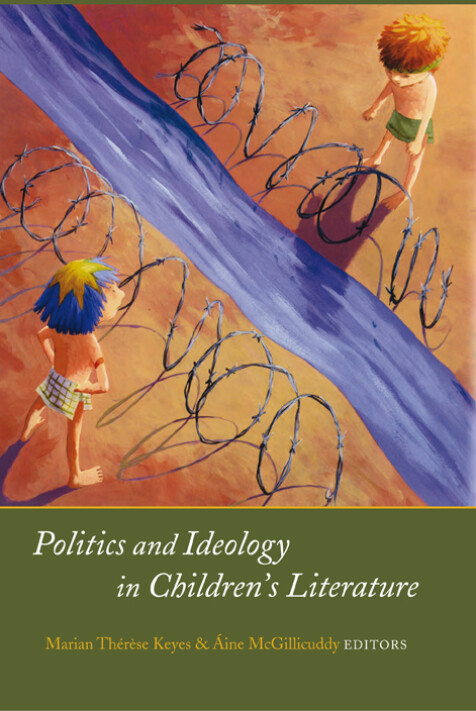Politics and ideology in children's literature
Marian Thérèse Keyes & Áine McGillicuddy editors
Introduction: politics and ideology in children’s literature
Marian Thérèse Keyes & Áine McGillicuddy
Part One: Ideology and Subversion
Little tweaks and fundamental changes: two aspects of socio-political transformation in children’s literature
Clémentine Beauvais
Ecocriticism, ecopedagogy and the life and works of Beatrix Potter
Eithne O’Connell
‘Creaturely life’: biopolitical intensity in selected children’s fables
Victoria de Rijke
‘That imprudent Old Person of Chili’: individual and They in Edward Lear’s limericks
Olga Springer
Part Two: Utopias and Dystopias
‘Don’t let the fire go out’: echoes of the past, aspirations for the future in the teenage novels of Eilís Dillon
Anne Marie Herron
Recovery of origins: identity and ideology in the work of O.R. Melling
Ciara Ní Bhroin
Distant districts and dark days: national identity in The hunger games
Susan Shau Ming Tan
Part Three: Experiences of War and Exile
‘You are the hope of the world!’: the figure of the child in First World War children’s literature
Elizabeth A. Galway
‘A noi!: the emergence of the gallant Fascist in Italian children’s literature of the inter-war period
Jessica D’Eath
Out of the Hitler time: growing up in exile
Áine McGillicuddy
Part Four: Gender Politics
Paratexts and gender politics: a study of selected works by Anna Maria Fielding Hall
Marian Thérèse Keyes
Young women dealing with abuse: Catherine Breillat’s cinematic perspective on Bluebeard
Brigitte Le Juez
Sexual violence and rape myths in contemporary young adult fiction
Marion Rana

